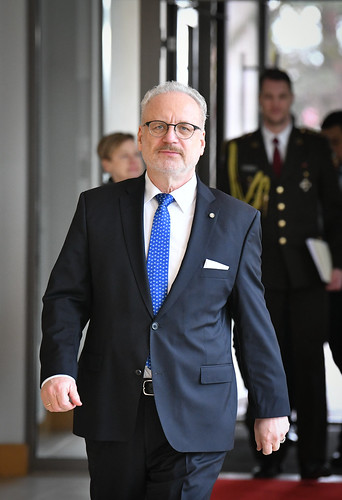On 31 January, President of Latvia Egils Levits took part in the final discussion ‘How local communities shape the work of local governments: the new local government law’ about new community participation mechanisms set up through the law. According to President Levits, provisions of the new local government framework envisage community-elected councils for closer participation of local communities, stronger sense of belonging and democracy at the local level.
As President of Latvia indicated, one of the ‘side effects’ of regional reform and bigger, economically more potent regions is that elected leadership is less accessible for residents. ‘I believe it is inappropriate. Towns and rural settlements should not be deprived of political representation because of reform. Towns with centuries long history, such as Rūjiena or Mazsalaca, will no longer have their locally-elected representatives advocating for them,’ Egils Levits said. President repeatedly warned Saeima and Cabinet of Ministers before the adoption of territorial-administrative reform law that it should provide for locally elected councils, which the approved Law on Local Governments does.
Egils Levits also pointed out that local communities should have a say in local matters. ‘We need to rank various priorities according to competence and find the right level to address them. We have local, sub-regional, regional, national, European and global priorities. We will always have local matters that are best solved by local community in conjunction with regional administration. The new legal framework allows local communities elect their town or parish councils and requires regional administration to facilitate them,’ President told participants.
As President Levits stressed during discussion, community councils must be formally elected. This would add legitimacy to their representation of local community and separate such councils from other advocacy groups.
Participation in community-elected councils should be people’s ‘own choice to devote their time and energy for the collective benefit’. That is how democracy works, President added. ‘It is about motivation to make the immediate and global environment better as much as possible,’ Egils Levits said.
Discussion ‘How local communities shape the work of local governments: the new local government law’ was co-organised by SOLIDO think tank, Ādaži Regional Community Association, Ministry of Regional Development and Environmental Protection and Ādaži regional administration.





